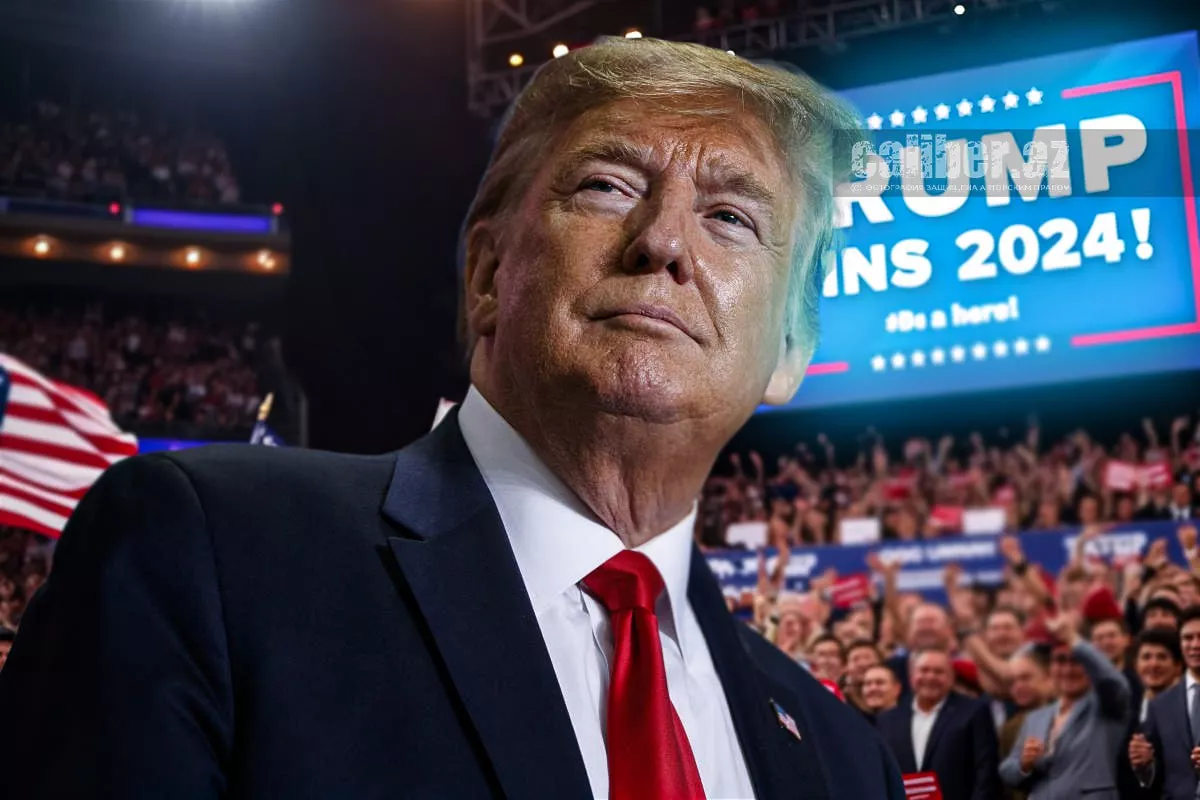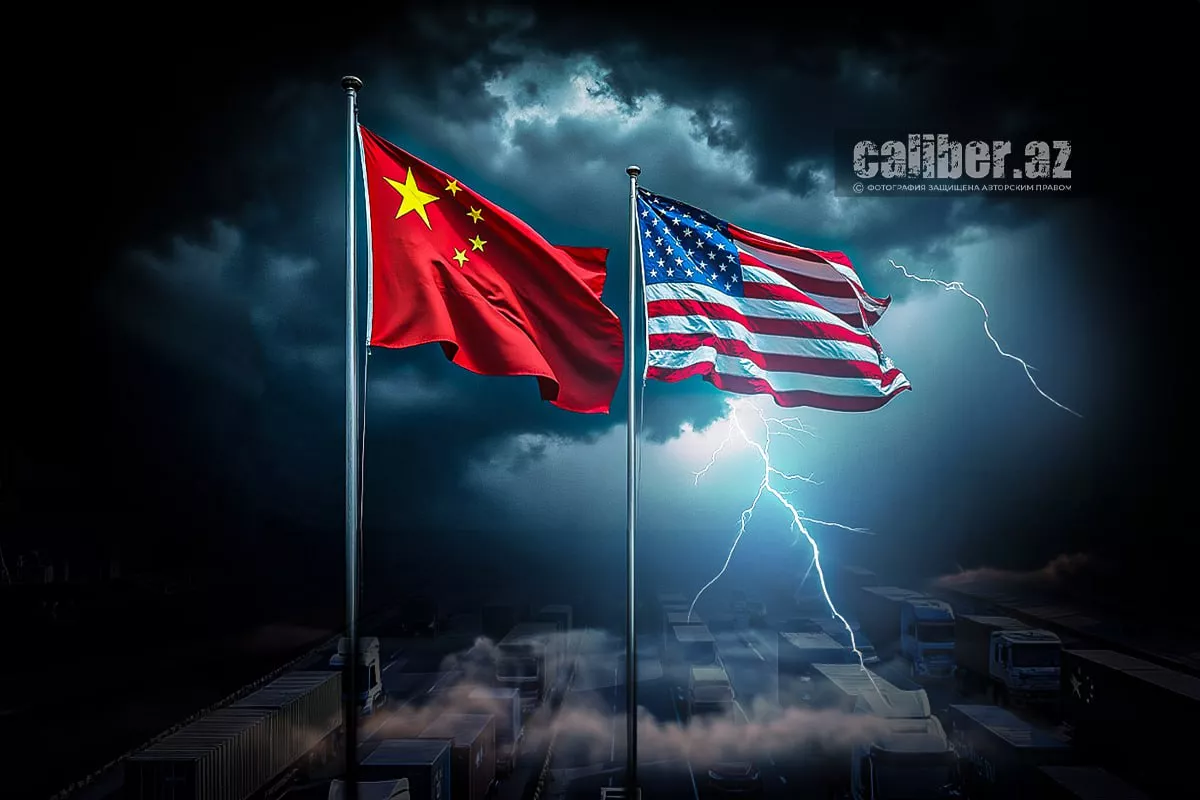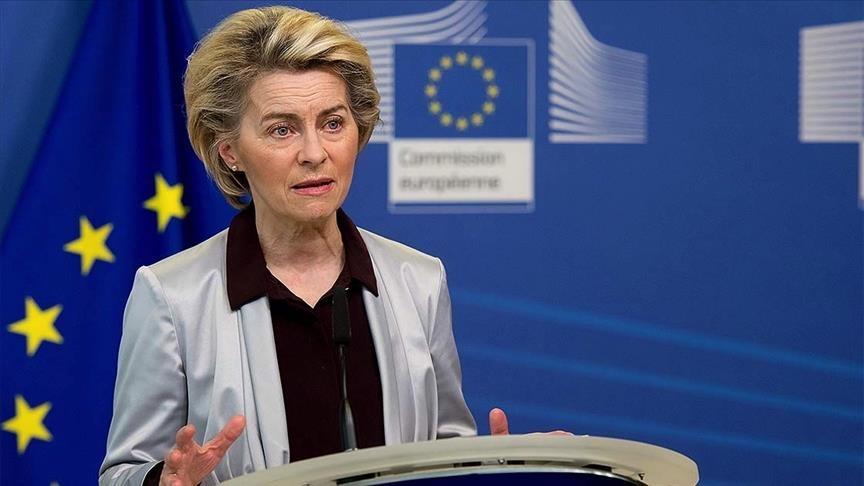World in ruins: Trade disputes between superpowers America vs. China
Last week, the United States and China imposed tariffs on each other, and new rifts have begun to emerge in the global economy. The future of the world will not only be determined on the battlefields in Eastern Europe. It will also be shaped by trade wars between the world's largest economies, with trade disputes potentially flaring up between various countries and blocs within the West, following the conflict between China and the U.S.
Predictable Trump
The new American president cannot be accused of unpredictability – he promised to launch an offensive against China, and he is doing just that. For the past few weeks, global media outlets have regularly generated stories suggesting that Trump might not aggressively pressure the Chinese after all. Recently, the American leader signed an executive order imposing protective tariffs on neighbouring Canada and Mexico, as well as on China. After an anticipated call with his Mexican and Canadian counterparts, Trump essentially forced them to agree to his demands. There was no such call with Beijing, and the trade confrontation between the two global giants began.
However, it is important not to overestimate the role of subjective factors or some strategy by Trump's team in this confrontation. A serious conflict between the U.S. and China is inevitable due to the very logic embedded in the modern world system, established by the West. This logic is simple: "The winner takes all," and thus, multipolarity is not acceptable, even at the regional level. Therefore, the rise of China is perceived by Western elites as a fatal threat to the U.S. and the entire collective West. And so, only after thoroughly measuring their strengths, will the U.S. and China begin negotiating. Beijing and Washington have much to fight for — the Chinese are advancing towards global leadership in economics and technology, and are already close to competing for the top spot, with a current GDP of $28 trillion and the world's largest reserves, around $3.3 trillion. Meanwhile, last year, China's economy grew much faster than the U.S. and the rest of the West, by 5%.
Beijing knows where it is heading and is building not only its military capabilities but also the corresponding civilian structures. For instance, between 2015 and 2020, the Chinese developed CIPS, a "substitute" for SWIFT, a system for cross-border yuan-denominated interbank payments, after which they began gradually introducing the yuan into their bilateral trade with foreign countries. Later, the yuan also found use in transactions between third-party countries without China's direct involvement: for example, in 2023, Pakistan became the first country to pay Russia for oil in yuan.
This raises the issue of revising the entire global system of international relations, regulation, and even international law.

The U.S. now has a president determined to fight for his country’s global hegemony and reverse its decline. The previous president, Joe Biden, declared, “China will never surpass the U.S.,” while China was quietly building partnerships with resource-rich nations such as Russia, Iran, and even Saudi Arabia, once the U.S.’s closest ally. Trump, however, immediately struck at Chinese trade and global communications, swiftly removing from Beijing subtle but important levers of control over the Panama Canal, which had begun to be managed by two companies suspected of ties to the Chinese government. And, perhaps most importantly, he also outlined for Russia's elites—themselves deeply westernized, despite their outward rhetoric about the "dangerous West"—the possibility of restoring ties with the U.S., which, of course, should pull Russia away from China. And this could work. In recent days, even the notorious Alexander Dugin could hardly contain his excitement in his columns, joyfully watching Trump's second coming. Trump is trying to do something similar with Saudi Arabia: initially, it seemed he was succeeding in pulling it away from agreements with China, and the Saudi crown prince promised $600 billion to the U.S. There was talk of the new American leader making his first foreign visit to Riyadh, though tensions have since arisen over the Palestinian issue.
Beijing is unwavering
These are not just dangerous but serious blows to China's achievements, and they will provoke an appropriate response. After all, unlike the European Union, whose leaders meekly tolerate even territorial claims against their countries, the people in power in Beijing are of a different calibre.
It’s enough to compare the responses of Europeans and the Chinese to the policies of the new American leadership. In response to threats to seize the massive island of Greenland from Denmark through military means and ultimatums to increase purchases of American goods, European and Danish politicians have been stammering for weeks, sometimes expressing willingness to negotiate, at other times offering to increase the presence of American troops on the island. Meanwhile, a referendum on "independence" is already being prepared in Greenland – one that could separate the island from Denmark to avoid a confrontation between Denmark (and the EU) and the U.S. Surprisingly, the entire circus surrounding the island’s “independence” is being warmly covered by the European press!
This stands in stark contrast to Beijing's behaviour in similar situations. In response to the intrigues that began in recent months, even under Biden, regarding support for Taiwanese separatists, China started joint patrols of the Pacific with Russia, conducted sudden massive military drills involving over 150 ships, and leaked information that more than 100,000 residents of Taiwan had secretly received Chinese passports. At the same time, Beijing made it clear: "Taiwan is China." Just before the New Year, China launched a huge amphibious assault ship, the Sichuan (displacing over 40,000 tons, twice the size of the French counterpart Mistral), equipped with a catapult for launching heavy aircraft. They also showcased two new sixth-generation fighter jets. The message was loud and clear — it appears that China has become the first country to put at least prototypes of sixth-generation aircraft into the air.
China didn't hesitate in defending its economic interests either. In response to the 10% American tariffs on all Chinese imports, Beijing immediately retaliated with 15% tariffs on American coal and liquefied natural gas, and 10% tariffs on oil, certain types of cars, and agricultural machinery. The liberal pro-Western press, of course, quickly began to argue that these tariffs were insignificant for the U.S., which is not surprising, as questioning the invincibility of the leader of the West is unacceptable in their worldview. However, in reality, the Chinese struck exactly at the categories of goods that Trump is trying to increase exports of. The Chinese, unlike the Europeans, have the courage to stand their ground.

Therefore, there are no other options — the future of the world will be determined by the U.S. and China, with no place for Europeans. And this is not just about the objective balance of power, but also about the quality of leadership and diplomacy. In simple terms, it comes down to political will.
Europe without leadership
The European Union, which is visibly deteriorating, still has power and influence, particularly in non-military spheres. One example is the share of the dollar, euro, and yuan in global currency reserves, which stands at 73%, 24.6%, and 2.7%, respectively. However, the European liberal establishment is not ready to play its own game, instead clinging to personal positions of power.
In the current situation, the EU, in its disputes with the U.S., is already signalling a readiness to agree to more or less honourable terms of capitulation. On one hand, European Commission President Ursula von der Leyen stated at a meeting with EU ambassadors in Brussels that the European Union is ready for "tough negotiations" with Trump on trade issues. She coyly added that, in the "age of hyper-competition," it makes sense for the EU to deepen economic ties with Beijing. This sounded particularly notable coming from Ursula, who, along with her allies in the Brussels bureaucratic machine, had spent years advocating for "decoupling" the EU from China. She even had to somewhat justify her gesture towards Beijing: "We will keep de-risking our economic relationship – as we have been doing in recent years. But there is also room to engage constructively with China – and find solutions in our mutual interest."
And yet, this still appeared insincere, because, on the other hand, von der Leyen continued to more thoroughly insist on the need to build a partnership with Trump. Speaking in the jargon of EU officials, who monstrously speak in a foreign language — yet continue to do so because of its sacred status among liberal elites — she stated: "Our first priority is now to work on the many areas where our interests converge. And there is still scope to do so much more – from critical supply chains to emerging technologies." This would allow "to work out any grievances and to set the foundations for a stronger partnership." To translate: the EU is ready to follow Trump's wishes but would like to maintain some external decency. On February 7, during a meeting with Polish leaders, Ursula reiterated this stance, but without mentioning China, instead lamenting that negotiations with Washington had not yet begun — there was no "impulse" from the other side.

Probably, nothing else could be expected from the EU leadership, given Brussels’ undeniably weak position. Its economy is deteriorating amid the bloc’s entanglement in the conflict with Russia. Internal contradictions within the EU are deepening: in addition to political crises in its largest member states, new factors are tearing the bloc apart. Germany is effectively reestablishing its own borders, Poland’s opposition is seeking political asylum in Hungary, and on February 6, an official investigation was launched against Poland’s leadership—closely linked to von der Leyen’s team in Brussels—on charges of attempting a coup.
At the same time, the Polish president has urged citizens to defend the results of upcoming elections from Brussels’ interference, “just as recently happened in Romania,” where election results were overturned following the victory of an anti-EU candidate. The legitimacy of pro-European elites is plummeting across the EU—just recently, it was revealed that a staggering 88% of German voters fear electoral manipulation in February. Unsurprisingly, Trump is openly prioritising bilateral relations with individual EU states, bypassing the Brussels bureaucracy altogether.
Unpredictable consequences of the trade war
Regardless of who ultimately emerges victorious in the battle for global leadership, the world economy is fragmenting at an accelerating pace. For a long time, the West tried to downplay the consequences of severing ties with Russia. However, Ursula von der Leyen recently broke the taboo by admitting the obvious—Europe has paid a steep price for abandoning Russian energy resources. Now, not only ordinary citizens but also businesses are struggling with “sky-high electricity costs,” pushing the EU’s chemical and automotive industries “to the brink of survival.”
Naturally, these destructive effects are being felt on both sides of the long-standing confrontation between the EU-NATO bloc and Russia. One only needs to look at the decline of ports and the collapse of costly infrastructure projects in Eastern European countries. The damage goes beyond just pipelines—the region’s railway system is deteriorating, and air travel has become a rarity. In other words, the post-conflict infrastructure landscape in Eastern Europe may soon resemble that of East Africa.
Yet, despite these warning signs, economic ties continue to be severed. On January 10, the United States imposed its most severe package of sanctions on Russia’s energy sector to date, further deepening the global economic rift.
Now, the focus is shifting to the decoupling between the United States and China. Given the enormous scale of their economic ties, such a process will take time, but its consequences will be devastating for the global economy. However, it is far from certain that this will cripple China’s economic power. More likely, it will lead to a redirection of trade flows, capital, human resources, and technology.
A useful analogy can be drawn with the Western sanctions against Russia. These measures were expected to crush the economy of what was dismissively called an "outdated gas station country." Yet, the reality turned out quite differently. Instead, sanctions have boosted the intermediary role of non-Western countries in trade with Russia, significantly curbed capital flight—which had been draining the Russian economy for decades—and forced a technological modernization by deepening cooperation with other non-Western states.
Just recently, Russia’s Finance Ministry reported that in the first nine months of 2024, the country’s budget revenues from oil sales surged by 1.5 times, exceeding 8 trillion rubles. Observing these developments, the G7 countries are now considering lowering the price cap on Russian oil from $60 to $40 per barrel—a sign that their initial strategy has not yielded the expected results.
To summarise, the myths of free trade and the invisible hand of the market, which have been promoted for decades, have always belonged more to the realm of propaganda than reality. In an imperialist world, free trade exists only as long as it does not threaten the dominant positions of global superpowers. For them, the "freedom to trade" often translates into prohibiting other nations from protecting themselves against imposed economic conditions. This has always been the essence of the Western-led world order—whether through gunboat diplomacy, military interventions, or coercive trade agreements that forced India, China, or Japan into exploitative economic arrangements with Western empires.
A truly rules-based world order has yet to be built. Otherwise, the alternative is a descent into war, devastation, and famine—an outcome driven by the policies of global superpowers. The least that can be done to resist this trajectory is to counteract their destructive influence at national and regional levels—especially for regions like the South Caucasus, which has repeatedly confronted such challenges in its modern history.








